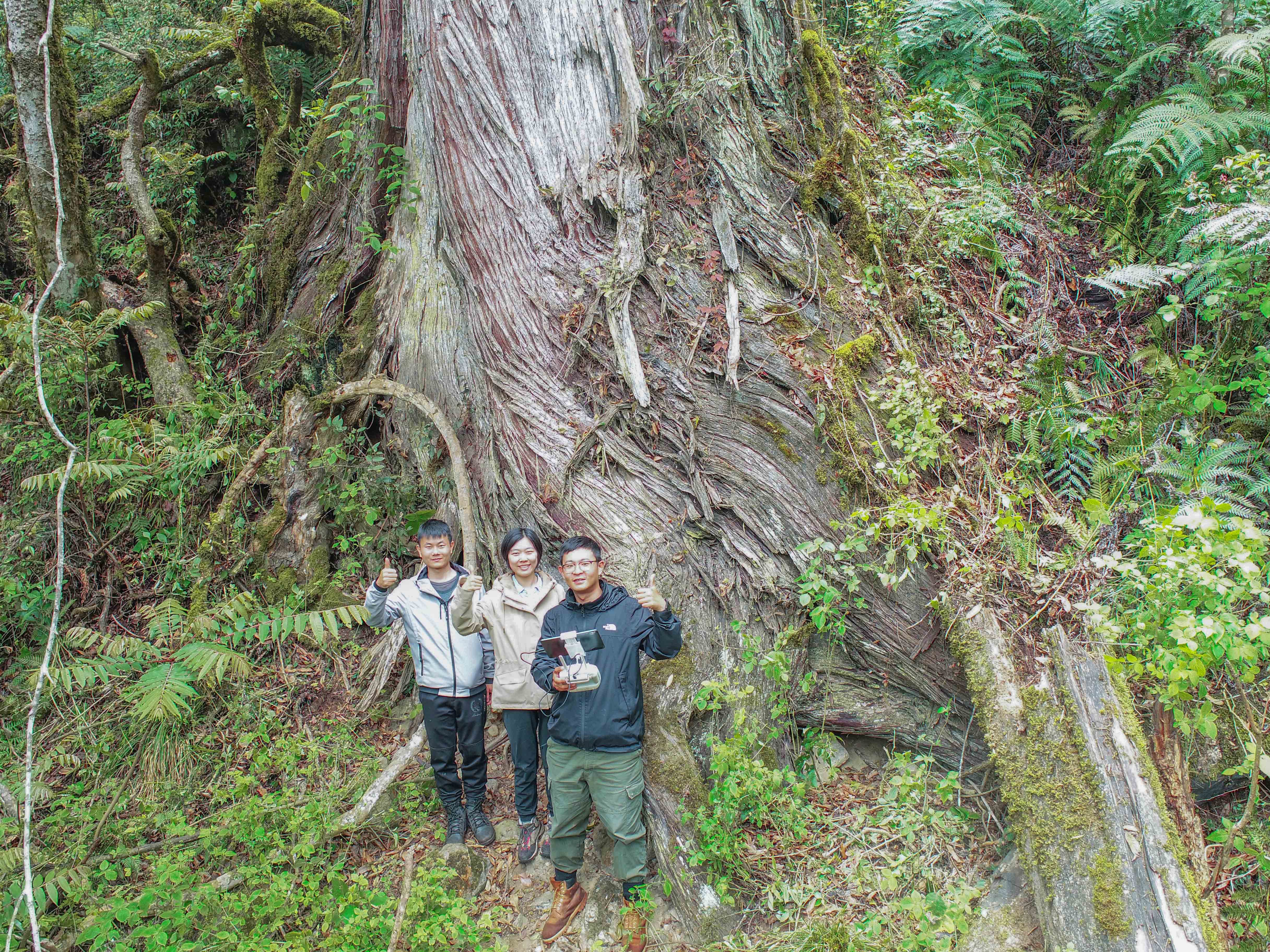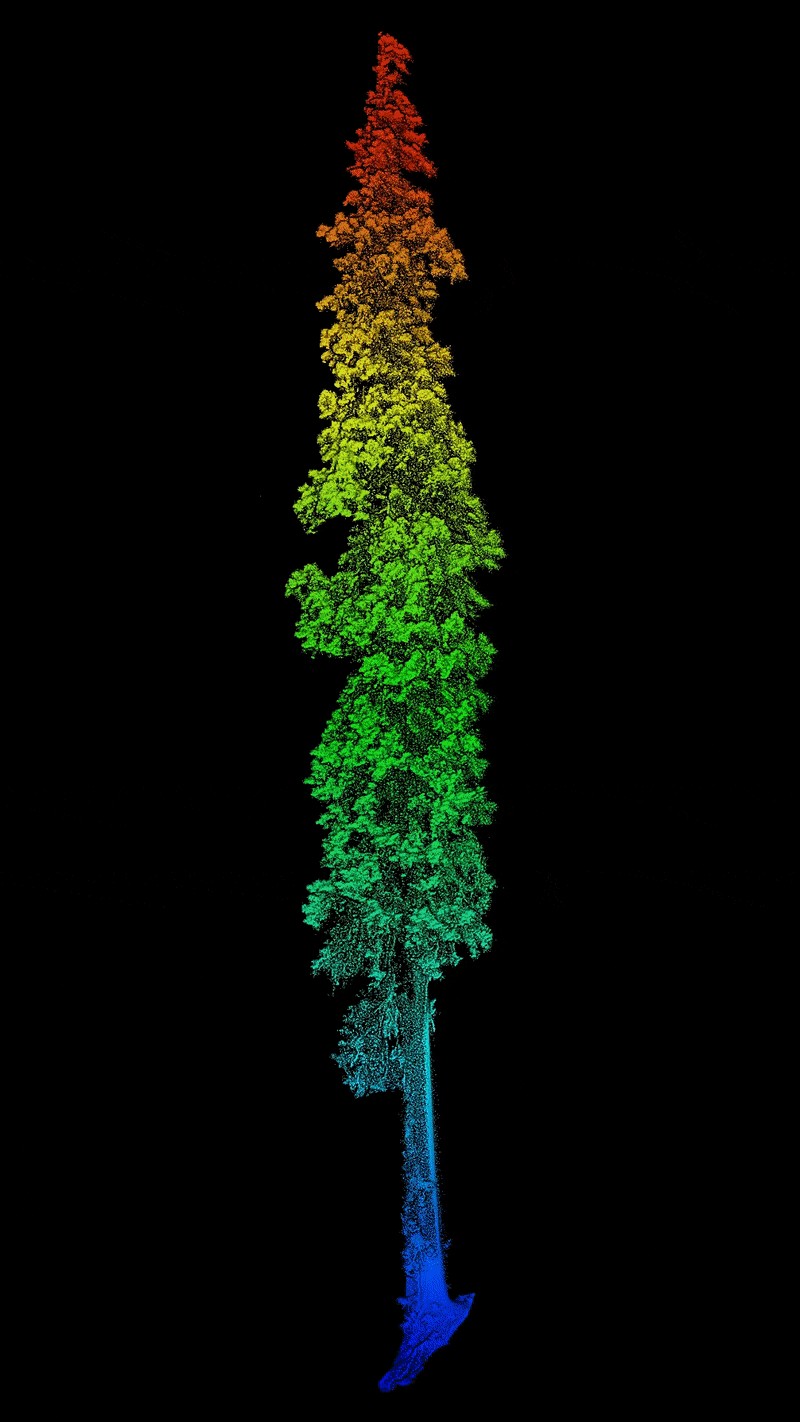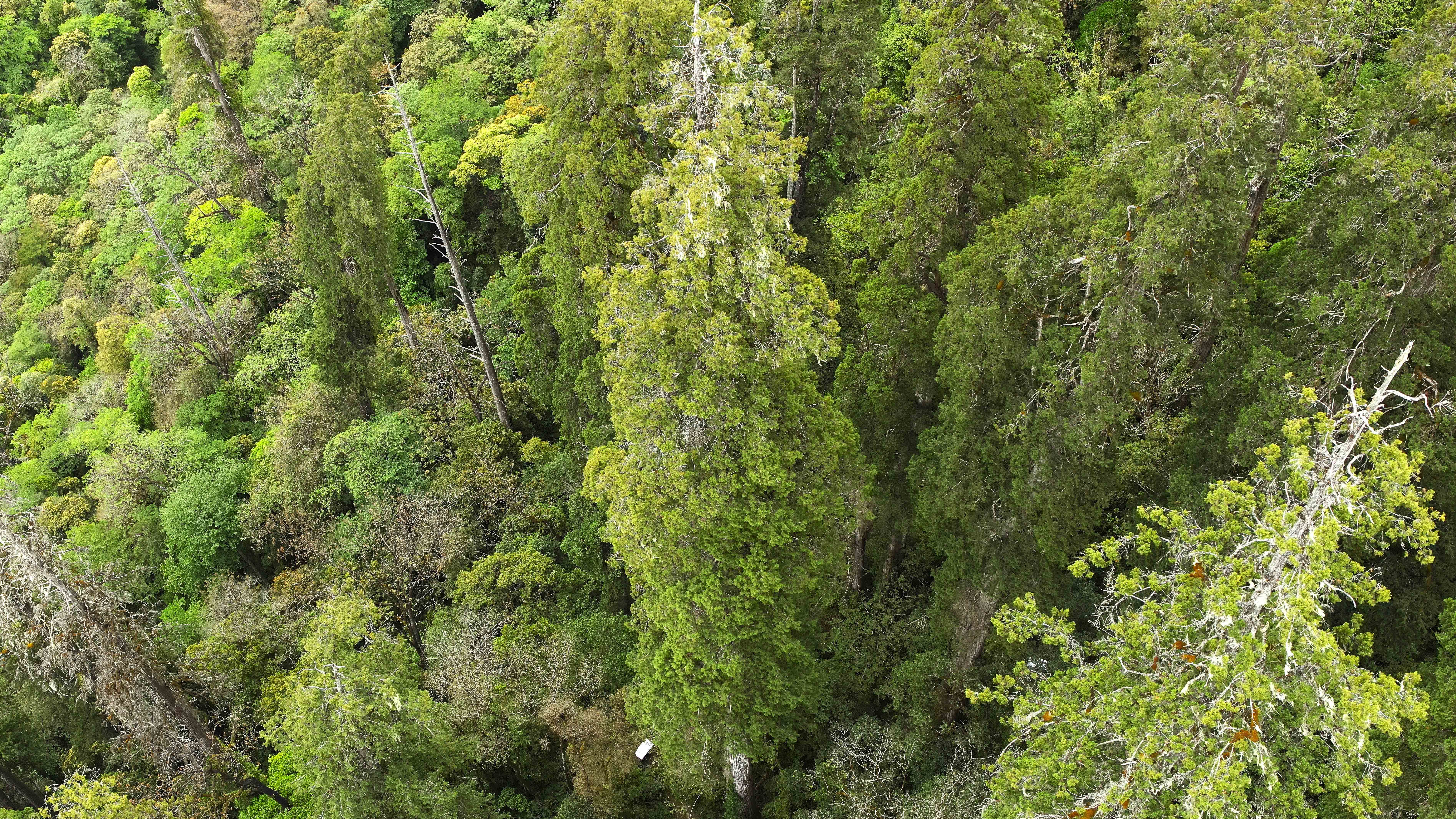If you look up "the tallest tree in Asia" on the internet, it may mention Menara, a yellow meranti (Shorea faguetiana) tree with a height of 100.8 meters found in Malaysia. The record, however, has now been broken.
The newly discovered giant tree is a Himalayan cypress (Cupressus torulosa) standing in the Yarlung Zangbo Grand Canyon in Bome County of Nyingchi Prefecture, southwest China's Xizang Autonomous Region.
It was measured at 102.3 meters, making it the tallest known tree in Asia and the second tallest tree species in the world after the coast redwood (Sequoia sempervirens) in America.
(Notice: You need 10 seconds to scroll through the screen to view the full-length photo of the 102.3-meter Himalayan cypress.)

Full-length photo of the 102.3-meter Himalayan cypress, Yarlung Zangbo Grand Canyon National Nature Reserve, southwest China's Xizang Autonomous Region.
Full-length photo of the 102.3-meter Himalayan cypress, Yarlung Zangbo Grand Canyon National Nature Reserve, southwest China's Xizang Autonomous Region.
The discoveries
In May 2023, a joint investigation team used a lidar drone, a kind of drone carrying a lidar sensor, to accurately map an area that has a cluster of Himalayan cypresses.
Soon, they confirmed the existence of the 102.3-meter-tall giant tree.
The investigation was jointly completed by scientists from Peking University, the Xizijiang Conservation Center and the Shan Shui Conservation Center, with the support of the National Forestry and Grassland Administration, and the provincial and regional forestry and grassland bureaus.

Researchers standing with the 102.3-meter-tall Himalayan cypress, Yarlung Zangbo Grand Canyon National Nature Reserve, southwest China's Xizang Autonomous Region.
Researchers standing with the 102.3-meter-tall Himalayan cypress, Yarlung Zangbo Grand Canyon National Nature Reserve, southwest China's Xizang Autonomous Region.
The cluster was first found by Li Cheng from the Xizijiang Conservation Center. Then a research group led by Guo Qinghua from Peking University carried a drone and backpack lidar to the deep forest.
By combining lidar technology with the drone, they gained accurate 3D point cloud models of these trees.
The 3D point cloud is a highly accurate digital record of certain objects. By using a 3D laser scanner and lidar to measure an area, researchers can quickly get the dimensions, sizes and layout data of the object.

The 3D point cloud model of the 102.3-meter Himalayan cypress.
The 3D point cloud model of the 102.3-meter Himalayan cypress.
The last record of the tallest tree in China was found in 2022: an 83.2-meter-tall Abies ernestii var. salouenensis, a type of evergreen fir, in Zayu County of southwest China's Xizang Autonomous Region.
The latest discovery has rewritten the records of the tallest trees in Asia, and the place is also deemed to be the currently known region with the highest height and distribution density of giant trees in China.
Besides the 102.3-meter Himalayan cypresses, a large number of giant trees over 85 meters have also been identified in the area, and 25 of them are taller than 90 meters.

The cluster of the Himalayan cypresses in Yarlung Zangbo Grand Canyon National Nature Reserve, southwest China's Xizang Autonomous Region.
The cluster of the Himalayan cypresses in Yarlung Zangbo Grand Canyon National Nature Reserve, southwest China's Xizang Autonomous Region.
Importance of the giant trees
Giant trees are rare, even worldwide, because their existence requires suitable soil and climate conditions. Besides, they have to stay safe from wind, fire, lightning and human interference.
Giant trees play an irreplaceable role in biodiversity and ecological value. They usually grow in primeval forests with rich biodiversity. Studies show that the existence of giant trees can reveal the authenticity and integrity of the ecosystem where they grow.
What's more, the giant tree itself has a very complex branching system and a vertical structure, which provide ideal microclimates and habitats for some endangered plants and animals.

The Himalayan cypresses in Yarlung Zangbo Grand Canyon National Nature Reserve, southwest China's Xizang Autonomous Region.
The Himalayan cypresses in Yarlung Zangbo Grand Canyon National Nature Reserve, southwest China's Xizang Autonomous Region.
Classified as a first-class protected plant species in China, Himalayan cypresses are very rare in the wild.
In China, the species is mainly distributed around the southeastern regions of Xizang, and only a small number of them can be found in the Yarlung Zangbo Grand Canyon National Nature Reserve.
The investigation team hopes to establish a long-term monitoring network of the Himalayan cypresses, including their distribution density, population and age.
Featuring high mountains and deep canyons, there are still many inaccessible areas in the Yarlung Zangbo Grand Canyon. The investigation team called on researchers from all over the country to pay more attention to the region and carry out more in-depth studies on the biodiversity there, as there are still many research gaps.
(All photos provided by Zhao Xiang from Shan Shui Conservation Center.)
(If you want to contribute and have specific expertise, please contact us at nature@cgtn.com.)